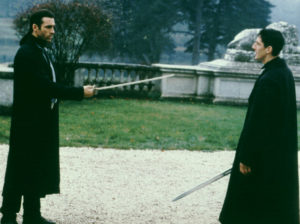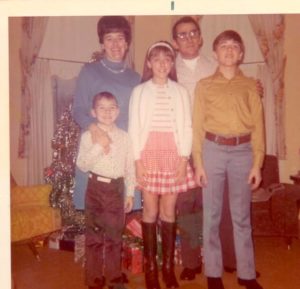I am a huge fan of the show “Highlander”. For those too young to remember or if you didn’t watch, “Highlander” was a tv series spun off the 1987 film of the same name. It follows a race of people called Immortals. They are possessed of something called a “Quickening” that enables them to live forever. That is, unless they have their head removed from their body by a sword.
The series traces the main character, Duncan MacLeod, a Scottish highlander (thus the name of the show) born 400 years ago in Scotland. He has lived to, then present day (mid 90s) and has group of immortal friends of varying age. He also befriends and falls in love with a cast of mortals as well. Each week, there was an immortal bad guy that usually met a grisly, though well deserved, end at the hand of Macleod of one of his immortal band of friends.
What “Highlander” also did was examine, sometimes in uncomfortable detail, what it was like to live forever. To outlive your family, your friends and your own history. Many of the characters were fleshed out to look at just what it was like to deal with the grief of not only losing your connection with friends and family, but by doing this, losing your own identity.
It was a great show and I loved it. It spawned website after website filled with fan fiction, and devoted followers. I even went to a few conventions and met some of the actors. The draw was obvious. Put aside the hunky main character, the attractive co-stars and lovely sets and you still have a compelling tale of the immortals themselves. The mere mystery and pain of immortality.
The show resonated with me in a way that no other show has since. I longed to step into their world where death, though real, was not something an immortal had to worry about for themselves. I longed to have lived in those past times and see the things they did with a bullet-proof, immortal and ageless body. But as the show examined and as I have grown older, immortality would be mind crushingly lonely and heartbreaking. It is a curse more than a blessing. As I have aged, I fave found that living forever, for me, would be devastating.
 Case in point. I lost a cousin this week. She was 58, only 9 years older than me. She was one of my first contacts with an “older” girl. She became a teenager and dated when I was an impressionable, starry-eyed tween with allusions of Hollywood, fashion and disco. It was the 70s after all. She handed down dresses to me, played Barbies and was just an older version of what I thought a hip teen was. Along with my half-sister, she was a role model of what burgeoning womanhood was.
Case in point. I lost a cousin this week. She was 58, only 9 years older than me. She was one of my first contacts with an “older” girl. She became a teenager and dated when I was an impressionable, starry-eyed tween with allusions of Hollywood, fashion and disco. It was the 70s after all. She handed down dresses to me, played Barbies and was just an older version of what I thought a hip teen was. Along with my half-sister, she was a role model of what burgeoning womanhood was.
She was also the first cousin in my little group of childhood that has died. I’ve had other cousins pass, but none that I was as close to growing up. Ironically, the last few years- decades really- I rarely saw her. I rarely see many of my cousins anymore. I guess that is the way things are in our modern world. Facebook, is about our only contact. That and funerals. She had moved away and I hadn’t seen her in probably 8 years.
I wanted to write how I felt about this, but it has become less a loss of her now as it was then. That may sound heartless, but it’s hard to quantify a death when they aren’t part of your daily life. It made me think that as I have lost an Uncle this year, an Aunt four years ago, and now her that living brings a sense of outliving your own history.
Like Duncan Macleod, my life goes on and I drop friends and family along the way. The list of high school friends mount and so do others. It’s the way of things, I know, but it begs a question. Are you the sum of your history or are you constantly recreating it? Is life just your memories to be plucked away as people die, or are you continually refreshing what your history is?
Back to Duncan and his friends. Duncan was very sad many times and serious. But he was also tender, giving, loving and grabbed hold of life by the ears. He recreated his history over and over. So did his immortal friends. The ones that survived, that is.
So what can we take from the fabulous highlander and my story? Though we mourn the loss of what was and those that made our history, we can’t let it hold us in place. One day, it will be our turn to join that ranking of memory. We are part of someone else history. So grieve appropriately, but always remember what the show “Highlander” taught. People are always alive in our memories, but to survive, to live, we need to continually make new history every single day.
Make your history count. Live on. To quote Methos, a “Highlander” character, “Live. Grow Stronger. Fight another day.”


